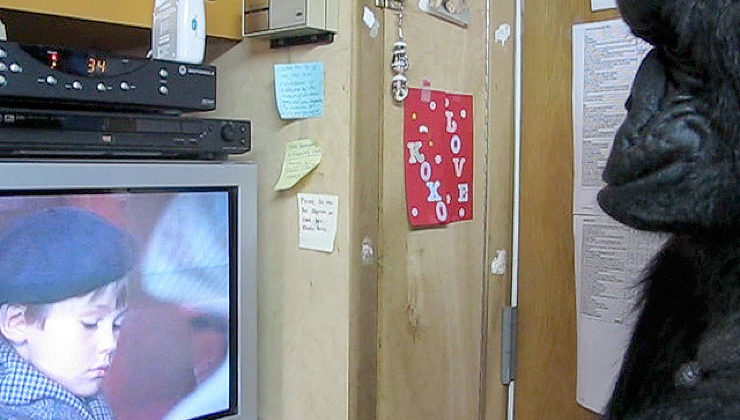Are gorillas emotionally aware? To answer this question, we are planning a study to systematically and quantitatively assess the degree of Koko’s awareness of: a) her own emotions and b) the emotions of others. In other words, the study seeks to define to what extent Koko reflects on her own emotions (or mental states) and those of others. No previous study has used sign language-trained (non-human) great apes to address this question and hence great apes’ capacity to consciously reflect on their own and others’ mental states has not been experimentally verified. This study will be conducted in collaboration with Dr. Dieter Steklis, Netzin Steklis, and Dr. Richard Lange (University of Arizona) as the co-principal investigators. It will involve both experimental and observational components.
The experimental component will feature direct interactions between Koko and her caregivers, using a carefully defined sequence of emotional awareness tests that have already been used successfully with humans. Because Koko can communicate with us through sign language, using her extensive vocabulary of emotions, she is in a unique position to tell us about the nature of her emotions and to “comment” on the mental sates of others (commonly known as “theory of mind”). A strength of the proposed experimental measures is that the results will be directly comparable to results from human studies. The observational component of the study will utilize Project Koko’s multimedia research archive — featuring decades of interaction with gorillas Koko and Michael.
Together, the observational and experimental components of the study will help us more rigorously test the hypothesis (based on Project Koko) that gorillas have a level of emotional awareness that is very similar to that of humans. (For an example of Koko’s keen awareness of the emotional states of others, watch the video Koko responds to a sad movie.)
In addition to its broad scientific benefits, we expect the results of this study to have direct positive applications for both captive gorillas (in zoos and sanctuaries) and free-living gorillas (in Africa). For example, Koko’s identification of the emotional significance (or meaning) of gorilla vocal calls (one of the planned experiments) will help us better understand the emotional lives of captive gorillas, and thus interpret their needs and wants — which is important for captive management. Similarly, experimental demonstration of Koko’s level of emotional awareness will make even more compelling the story of Koko’s Kitten (and Michael’s bushmeat memory) as part of our ongoing empathy-based conservation programs to help free-living groillas. We believe that the more we reveal about gorilla emotions — even if they are not exactly like our own — the more likely it is that gorillas will be “spared from extinction” by humans.
Your support is needed for us to implement and complete this research, which is so vital to the well-being or our fellow great apes. Please donate to The Gorilla Foundation now!


